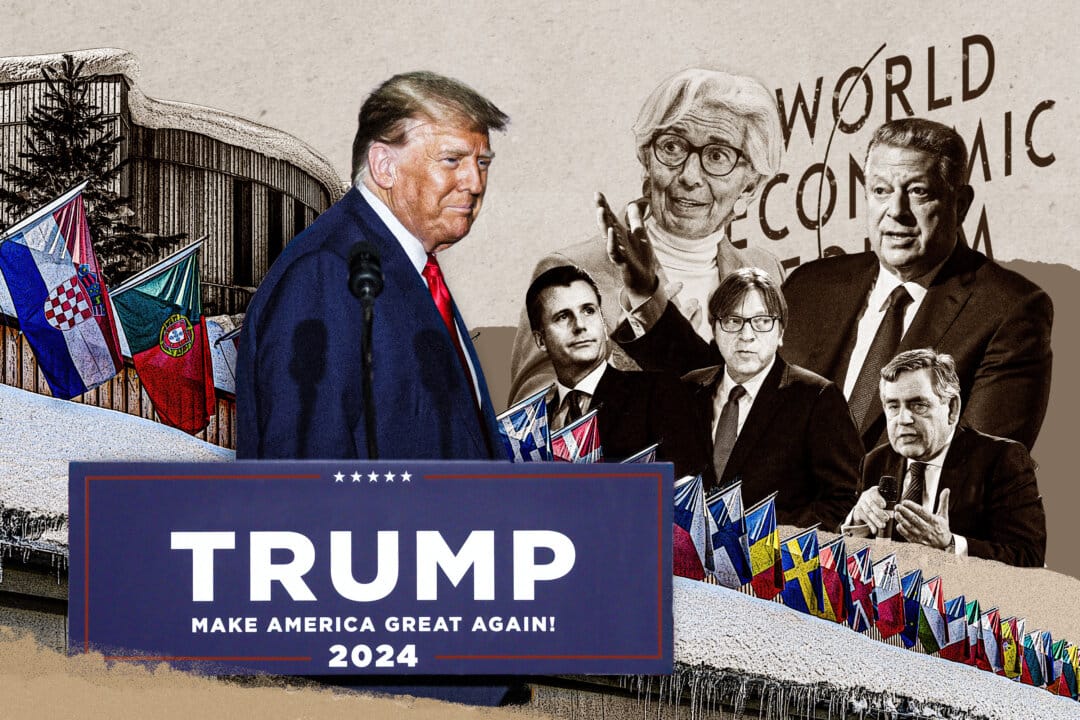In recent years, Donald Trump’s steadfast opposition to the global elites has sparked widespread debate and scrutiny. The former U.S. president’s rigorous stance against international trade agreements, diplomatic norms, and economic policies has reverberated domestically and globally.
Trump’s unyielding “America First” agenda and his aggressive approach toward globalist ideologies have fueled intense discussions and raised pertinent questions about the future of global governance and cooperation.
A select group known as the global elites have wielded significant influence in global politics and economics, shaping international policies, financial systems, and trade agreements.
This network comprises individuals, organizations, and power brokers who exercise control over vast resources and hold sway in determining the direction of global affairs.
Global Elites in Politics and Economy
The global elite network encompasses influential figures in government, finance, and multinational corporations, with connections across borders.
Key organizations such as the World Economic Forum and individuals, including prominent business magnates and high-ranking political leaders, are often associated with this influential cohort.
Their collective impact transcends national boundaries, profoundly affecting global economic interactions and political decision-making processes.
Throughout his public statements, speeches, and policy actions, Donald Trump has consistently expressed a staunch critique of the global elite class.
His criticisms have been particularly pronounced in the context of trade agreements, diplomatic initiatives, and economic policies, where he has called into question the practices and decisions that he perceives as serving the interests of the global elite at the expense of American workers and businesses.
For instance, his administration’s renegotiation of trade deals such as the North American Free Trade Agreement (NAFTA) and the withdrawal from the Trans-Pacific Partnership (TPP) underscore Trump’s anti-globalist stance and commitment to prioritizing America’s economic interests.
By challenging the influence of global elites in shaping international dynamics, Trump has defied conventional political paradigms and advanced a vision of economic nationalism that resonates with a segment of the electorate seeking to reclaim national sovereignty and economic self-determination.
His unyielding stance against the global elite establishment has become a defining feature of his leadership and policy agenda.
Fight Against the Global Elites
Throughout Donald Trump’s presidency, several key moments and controversies have shaped his fight against the global elites.
In January 2018, President Trump made history by becoming the first U.S. president in nearly two decades to attend the World Economic Forum in Davos. His attendance sent a powerful message to the global elite as he championed his “America First” agenda on the world stage.
Trump’s unapologetic stance on prioritizing American interests and challenging globalist policies sparked intense reactions from global leaders and elites. While some applauded his straightforward approach, others expressed scepticism and concern, setting the stage for ongoing tension with the global elite establishment.
A disruptive approach to trade agreements and tariffs marked Donald Trump’s administration. His emphasis on renegotiating trade deals and imposing tariffs to protect American industries and workers encountered fierce opposition from global elite-backed trade blocs and organizations.
The conflicts and negotiations surrounding these policies drove a wedge between Trump’s administration and the global elite, sparking debates on the impact of protectionist measures and the future of global trade dynamics.
Trump’s presidency saw a departure from traditional international alliances and cooperative frameworks guided by the global elite establishment. His scepticism towards multilateral agreements and institutions posed challenges to the existing global order, reshaping diplomatic relations and global geopolitics.
The impact of these policy shifts on longstanding alliances led by the global elites underscored the profound transformation in international relations during his tenure.
The key moments and controversies surrounding Trump’s fight against the global elites highlight the clash of ideologies and priorities between the Trump administration and the global elite establishment.
These pivotal events have had a lasting impact on global diplomacy, trade dynamics, and the power dynamics of the international stage.
Trump’s emphasis on national sovereignty
The Trump administration’s stance against the global elite has significantly influenced international diplomatic relations and economic dynamics, triggering responses and impact on a global scale.
The administration’s stance has reshaped diplomatic relations with global elite-led countries and international organizations. Key diplomatic figures and heads of state have responded with a mix of support and concern.
Some have applauded the emphasis on national sovereignty, while others have expressed reservations about potential disruptions to established international alliances.
The complex and evolving diplomatic landscape continues to be a focal point of global conversations, signifying the consequential impact of Trump’s policies on the international stage.
Trump’s policies have sparked debates about the impact on global trade, market stability, and international economic cooperation.
Economists and trade experts have varied perspectives on the repercussions, with some highlighting potential benefits in recalibrating trade imbalances and others expressing apprehension about market volatility and disruption of established trade agreements.
The evolving narrative surrounding economic and trade effects reflects the multifaceted consequences witnessed on the global economic stage.
The global power dynamics
This ongoing interplay between diplomatic relations and economic dynamics underscores the permeating influence of Trump’s fight against the global elite, shaping discussions and actions at an international level.
The scrutiny and support from various quarters illustrate the intricate web of responses and impact stemming from this significant shift in global dynamics.
With Donald Trump’s bold stance against the global elites, evaluating potential shifts in power dynamics and the implications for international cooperation is crucial.
The anti-global elite stance adopted by Trump could lead to significant shifts in global power dynamics and influence structures. As traditional alliances are questioned and global leadership is redefined, the long-term consequences on global decision-making could be profound.
This shift prompts a reevaluation of established norms and hierarchies, potentially altering the landscape of international relations in unforeseen ways.
Donald Trump’s fight against the global elites has sparked ongoing debates and uncertainties in international relations. His approach to trade agreements and foreign policy has challenged the traditional power dynamics, impacting global politics, economy, and diplomacy.
The clash between Trump and the global elite has led to reevaluating the traditional elite power structures and has forced a reexamination of existing norms and practices in global governance.
This shift has significant implications for the future of international relations as it continues to shape and redefine the global landscape.
By Geoff Thomas








